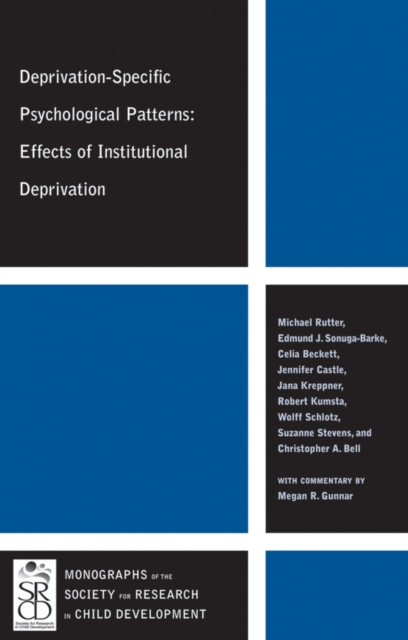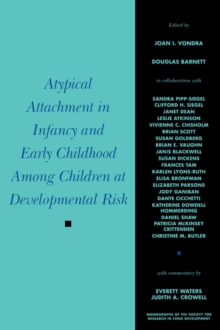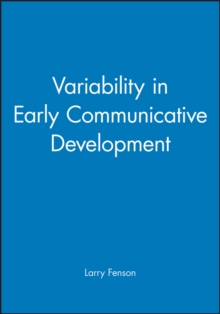
Deprivation-Specific Psychological Patterns : Effects of Institutional Deprivation Paperback / softback
by Sir Michael J. (Institute of Psychiatry) Rutter, Edmund J. Sonuga-Barke, Celia Beckett, Jennifer Castle, Jana Kreppner, Robert Kumsta, Wolff Schlotz, Suzanne Stevens, Christopher A. Bell
Part of the Monographs of the Society for Research in Child Development series
Paperback / softback
Description
The English and Romanian Adoptees (ERA) study constituted an invaluable "natural experiment" in which there was a rapid, easily-timed transition from a profoundly depriving environment in Romanian institutions to generally well-functioning adoptive families in England.
Multimodal methods of assessment were used throughout the assessments at 4, 6, 11, and 15 years of age.
Four key findings were particularly striking. First, institutional deprivation was associated with an apparently deprivation-specific pattern of combinations of quasiautism, disinhibited attachment, cognitive impairment, and inattention/overactivity.
Second, longitudinal growth curves showed a relative deceleration of growth between 11 and 15 years (possibly due to early puberty).
Third, institutional deprivation without subnutrition was associated with a major impairment in head growth.
Fourth, the effects of institutional deprivation were as strong at 15 years as they had been earlier in childhood.
Information
-
Available to Order - This title is available to order, with delivery expected within 2 weeks
- Format:Paperback / softback
- Pages:200 pages
- Publisher:John Wiley and Sons Ltd
- Publication Date:11/06/2010
- Category:
- ISBN:9781444338393
Information
-
Available to Order - This title is available to order, with delivery expected within 2 weeks
- Format:Paperback / softback
- Pages:200 pages
- Publisher:John Wiley and Sons Ltd
- Publication Date:11/06/2010
- Category:
- ISBN:9781444338393










